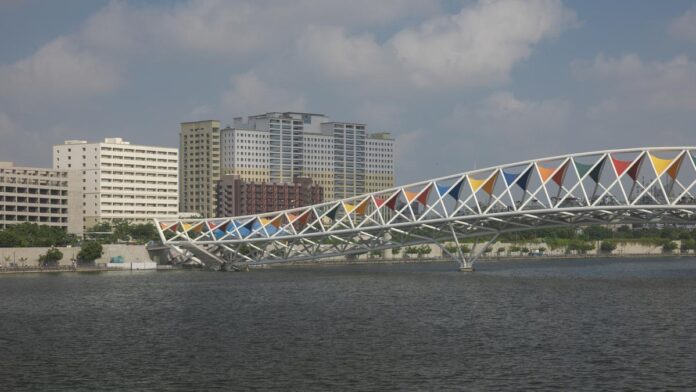Ahmedabad, steeped in a rich tapestry of mosques, tombs, and forts will captivate you at every turn, compelling you to absorb its grandeur. Founded in 1411 by Ahmed Shah I of the Gujarat Sultanate, the walled city was declared India’s first World Heritage City by UNESCO in 2017. If you have just 24 hours in this the 600-year-old city and are unsure of what to see, here is a beginner’s guide:
7am: Before exploring the ancient relics of the walled city, enjoy a hearty breakfast at Lucky Restaurant, locally known as Dine with the Dead. It is famous for its unique ambience, where diners eat beside coffins, and it also proudly displays a painting gifted by MF Husain. Alternatively, you can visit New Irani Restaurant to savour Mughlai dishes along with its mouth watering bun maska and Irani chai.
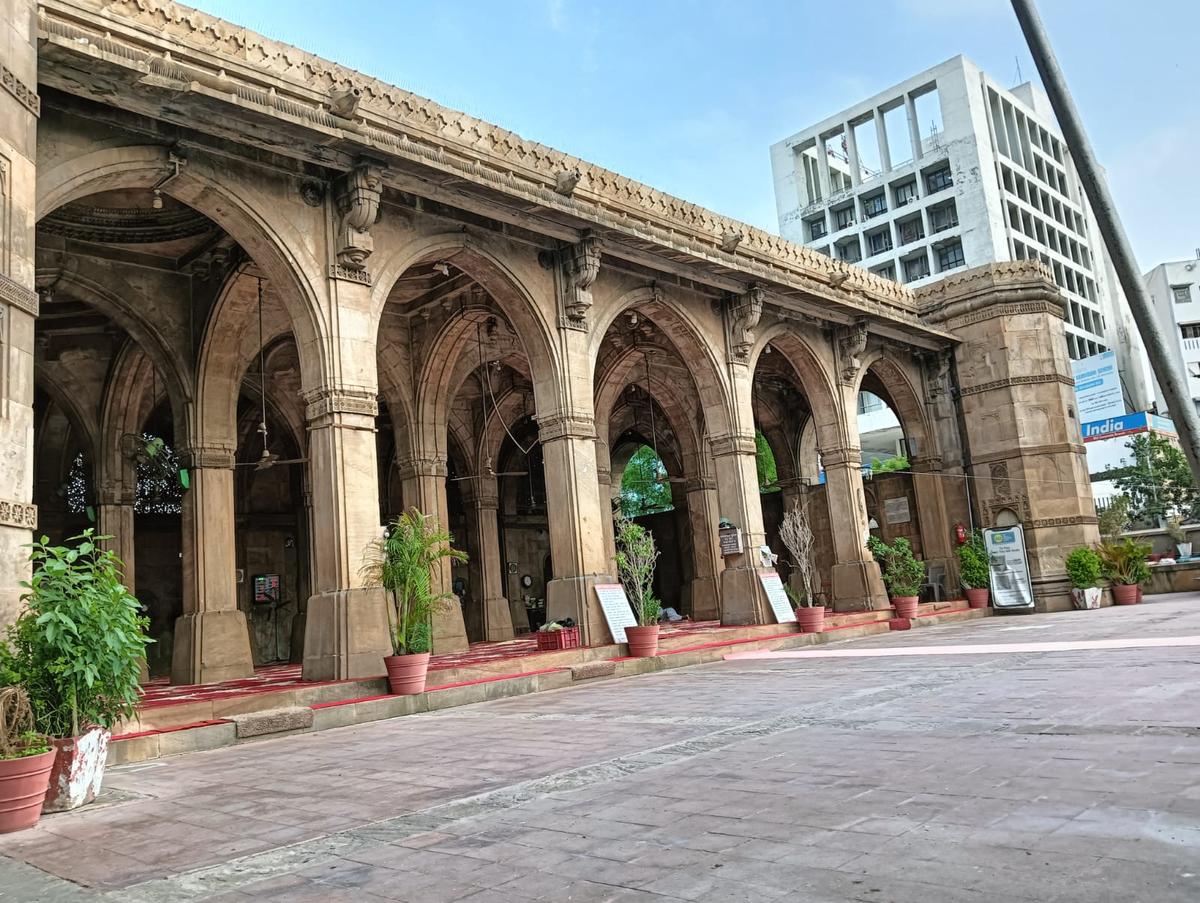
Sidi Sayed Mosque
| Photo Credit:
K. S. Swati
10am: Begin your exploration from Sidi Sayed Mosque. Popularly known as Sidi Sayed Ni Jali, the mosque features depiction of the kalpavriksha or ‘tree of life’. It appears on latticework where the branches are intricately intertwined is a symbolic representation of the city and the logo of the prestigious Indian Institute of Management, Ahmedabad.
After visiting this mosque, prepare yourself for an auto-rickshaw trail that offers an authentic taste of local life. Within 15 minutes, you will reach the oldest bastion of the city: Manek Burj, one of the last surviving remnants of the medieval wall that once encircled Ahmedabad.
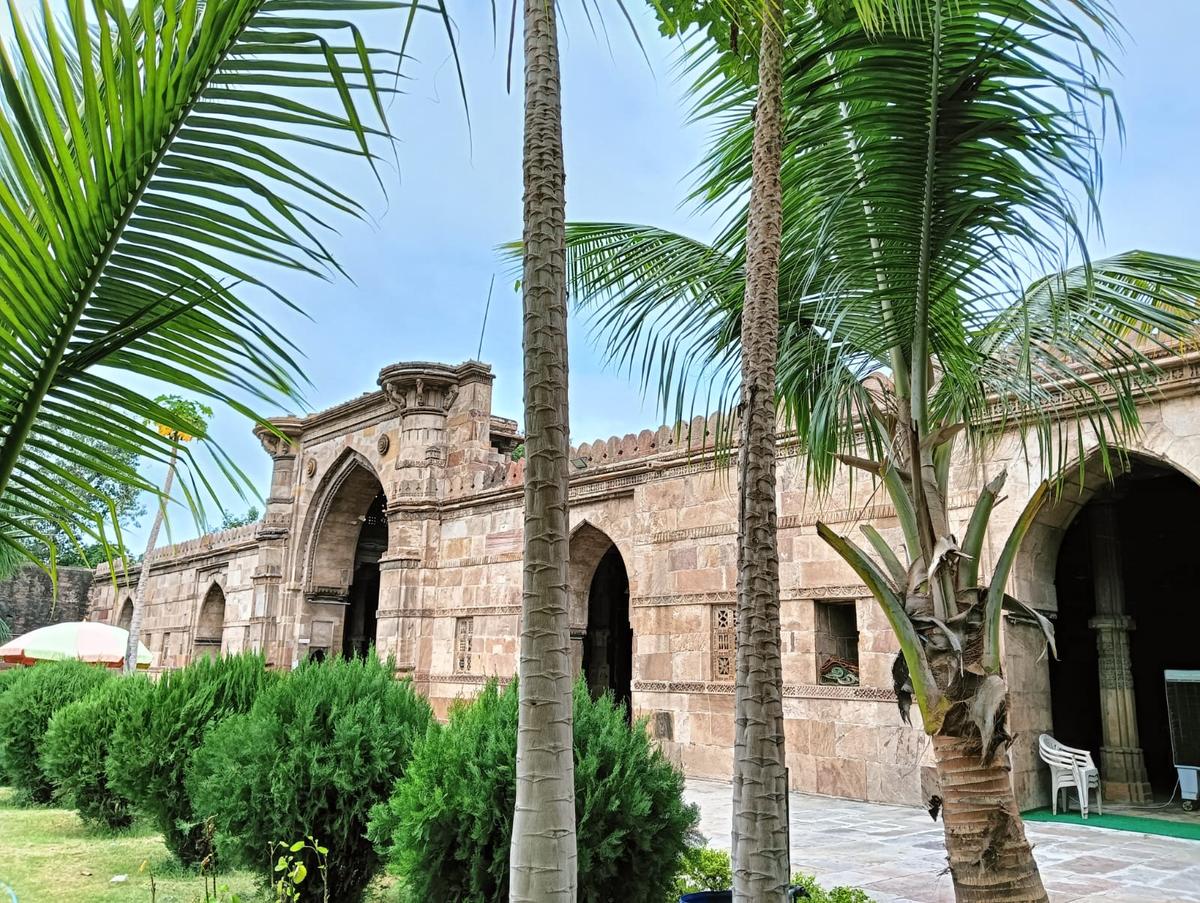
Ahmed Shah’s First Royal Mosque
| Photo Credit:
K. S. Swati
A unique mosque where the royals offered prayers, and where none of the pillars nor minarets are identical will bring you to Ahmed Shah’s First Royal Mosque. Built in 1414 by Ahmed Shah, it is the oldest mosque in the city. It exemplifies the Gujarat style of Indo-Islamic architecture, with its facade featuring carved panels, two minarets on either side, and stone screens adorned with jaali-work to filter sunlight. Just opposite the mosque you can see the First Club of Gujarat. A popular hangout spot of Sardar Vallabhbhai Patel, it is here he met Mahatma Gandhi for the first time in 1916.
11am: Bhadra Fort or Arak Fort captures every onlooker’s eyes. It is part of the oldest enclave of the city and is named after the Bhadra Kali temple which is situated inside and was added by the Marathas. The Mughal Empire built the Azam Khan Sarai in the 17th Century, and the British added a clock tower in the 1870s.
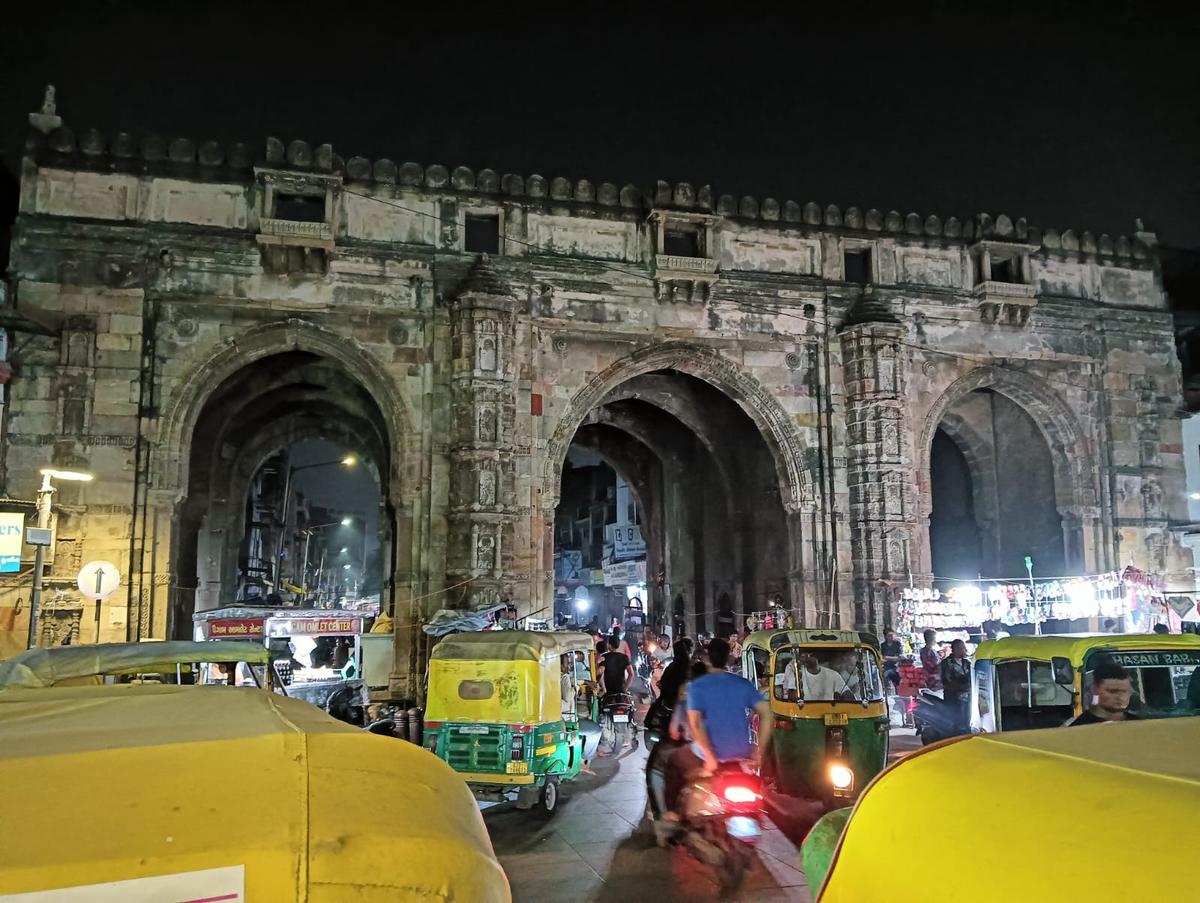
Teen Darwaja
| Photo Credit:
K. S. Swati
The city’s 10-kilometre wall, originally built with 12 gates and 189 bastions, and later fortified with 6,000 additional ramparts, whispers tales of its storied past. One among them is the famous Teen Darwaja. An exquisite example of Indo-Saracenic architecture it is from where Mughal emperor Jahangir and his wife Nur Jahan once watched processions to Jama Masjid. It also bears a royal notification by Maratha governor Chimanji Raghunath, advocating women’s rights in equally inheriting ancestral property.
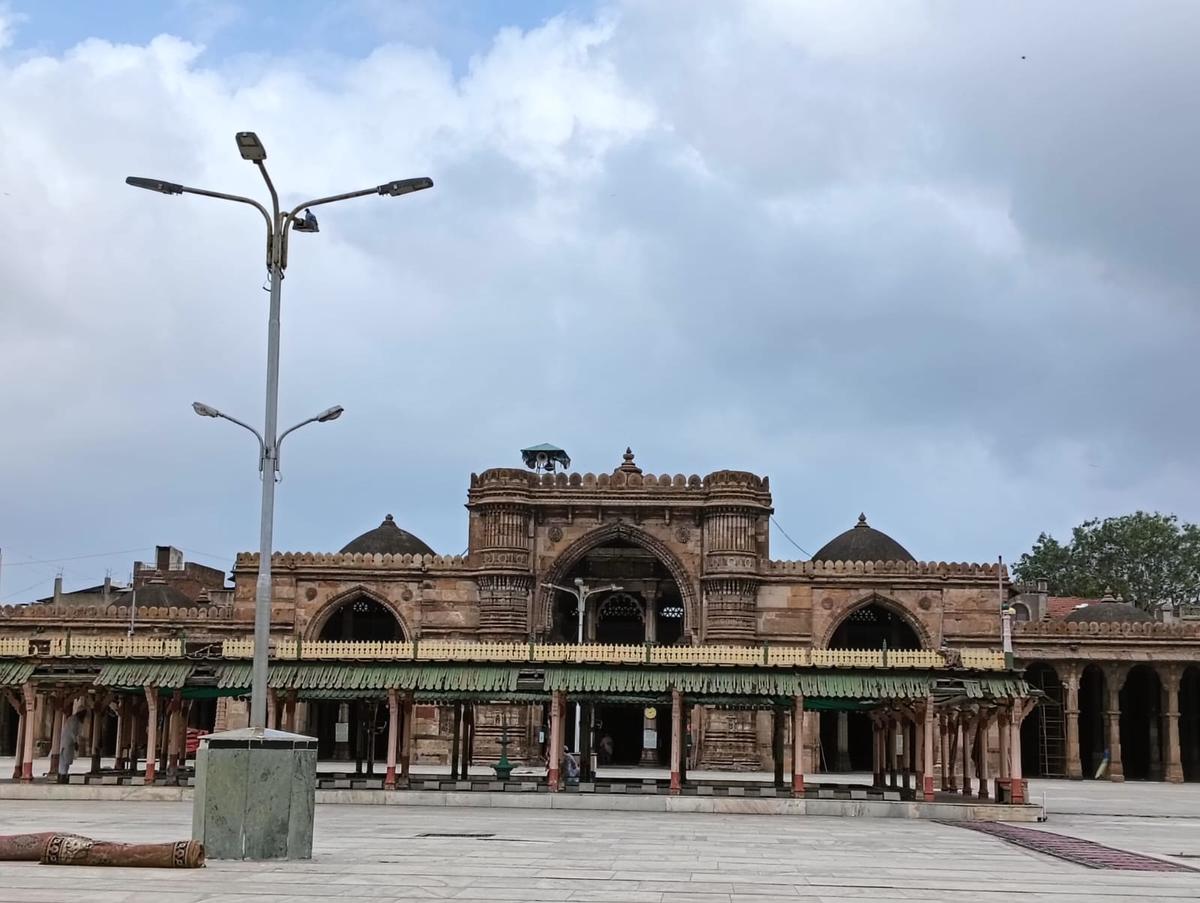
Jama Masjid
| Photo Credit:
K. S. Swati
For a peaceful retreat, look no further than Jama Masjid. Constructed in the 15th Century, this majestic mosque is among the largest in the Indian subcontinent. The sprawling marble-paved courtyard, with a serene area at its heart for prepping before prayers, is encircled by colonnaded galleries bearing Arabic and Urdu inscriptions.
Manek Chowk, bustling with food lovers at night, transforms into a historic site by morning, as it houses the First Stock Exchange building. Constructed in 1919, the building served as a stock exchange until its relocation to the Kamdhenu Complex at Panjarapol in the 1990s. Its striking European-style façade is adorned with elaborate decorations and ornate jharokha-style balconies.
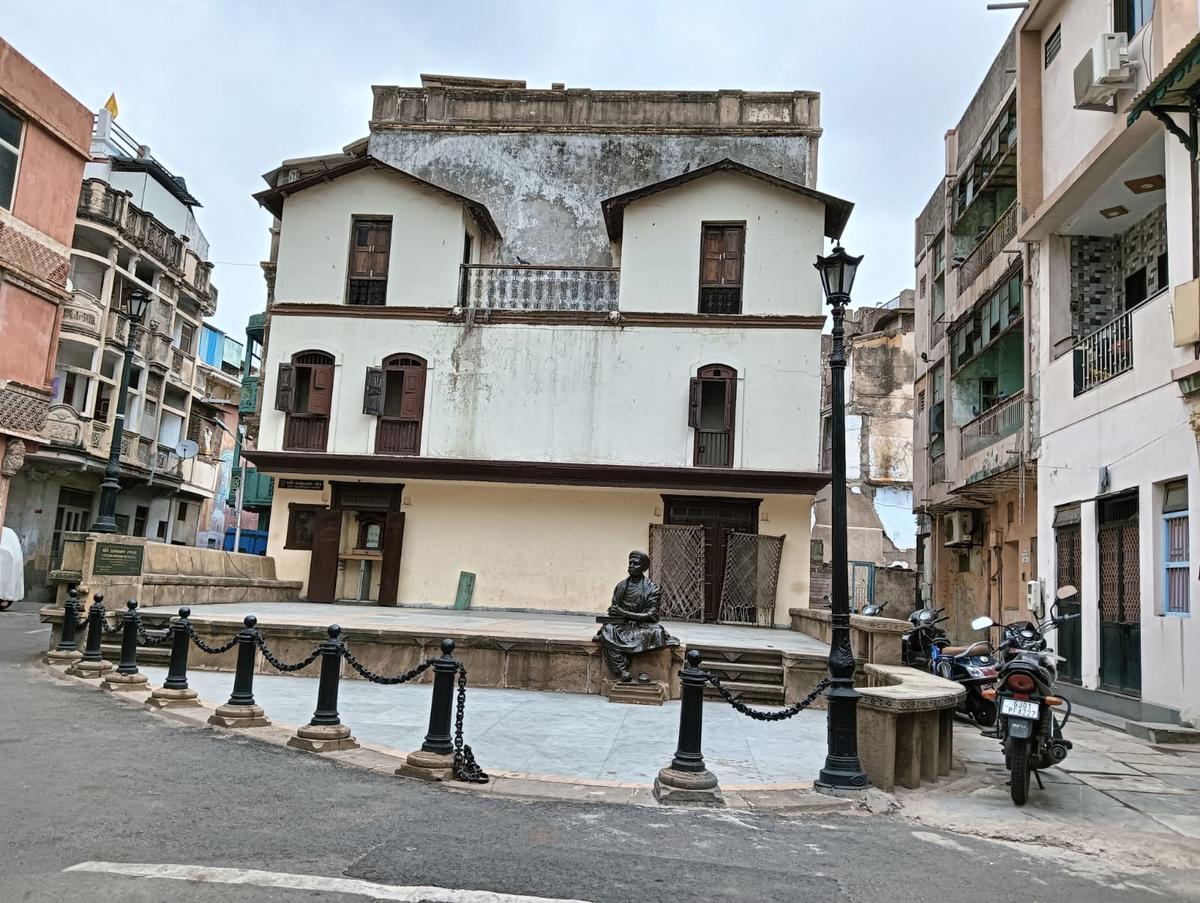
Kavi Dalpatram Chowk
| Photo Credit:
K. S. Swati
12pm: Having explored the city’s tombs, mosques, and forts, it is time to delve into Ahmedabad’s living quarters. Known as pols, there are a total of 600 pols featuring narrow, winding streets and intricately carved wooden facades. A notable feature is Kavi Dalpatram Chowk, dedicated to the renowned Gujarati poet, writer, and Sanskrit scholar who is known for his work on women’s empowerment and caste reform. Established on the site of his former home, which was destroyed around 2001, the chowk features a memorial to the poet, who lived from 1820 to 1898.
For a vibrant display of colour, visit the Swaminarayan Temple in the old city. Established in 1822 as the first temple of the Swaminarayan Hindu sect, this temple showcases breathtaking multi-coloured wood carvings. Its panels, made from Burma teak, are richly detailed with artistic embellishments, while the gateway sculptures are adorned with vivid Rajasthani costumes and hues.
12.30pm: After a morning of sightseeing, you might be craving a hearty meal. Snag a table at ITC Narmada Peshawari. This award-winning restaurant brings the robust flavours of the North-West Frontier to life.
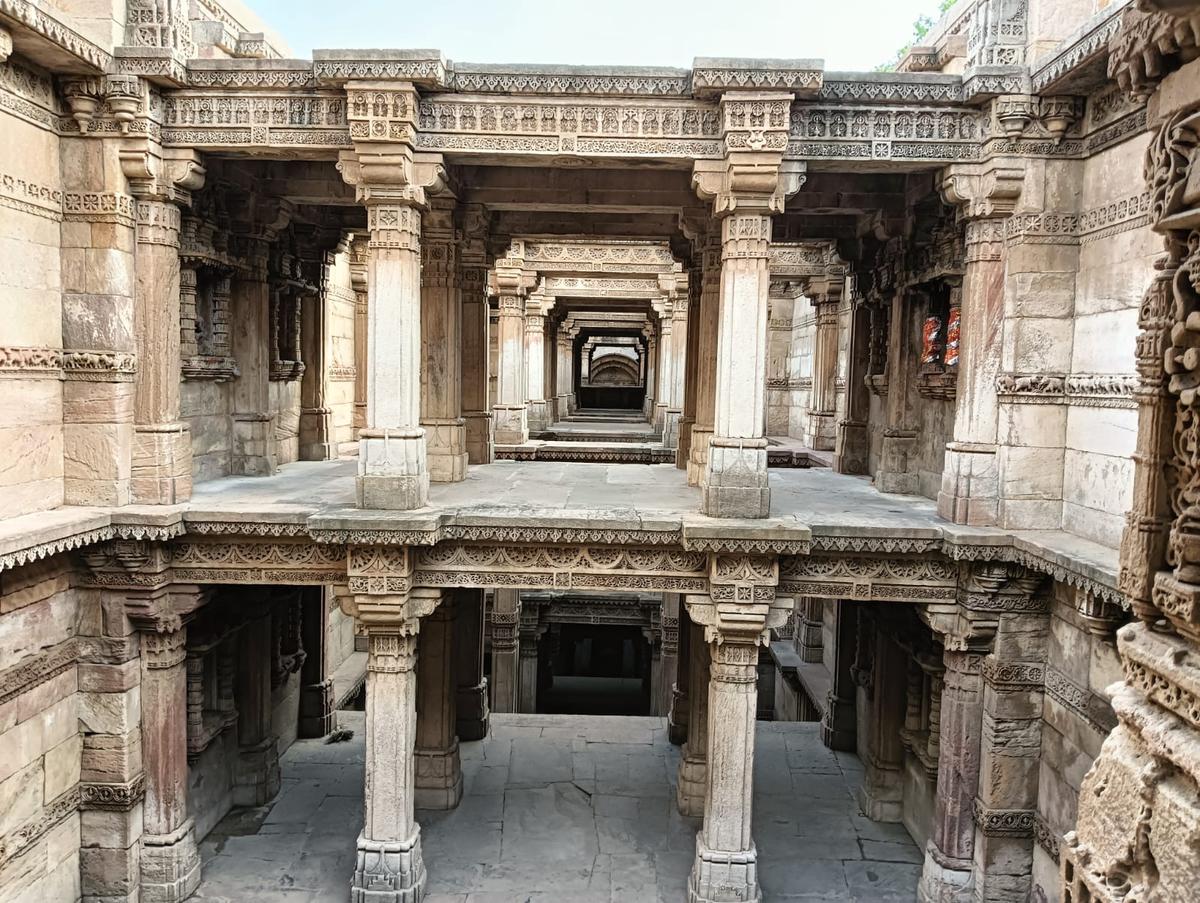
Adalaj ni Vav stepwell
| Photo Credit:
K. S. Swati
2pm: Head to Adalaj ni Vav stepwell which is located about 19 kilometres North of Ahmedabad. It is one of Gujarat’s most remarkable stepwells. Constructed in 1499 by Queen Rudadevi in honour of her husband, Veer Singh of the Vaghela dynasty, this stepwell has three entrances that meet at a platform supported by 16 pillars. This remarkable example of Indo-Islamic architecture, featuring Jain influences, also includes notable carvings such as the kalpvriksha and ami khumbor (pot of life), both carved from single stone slabs.
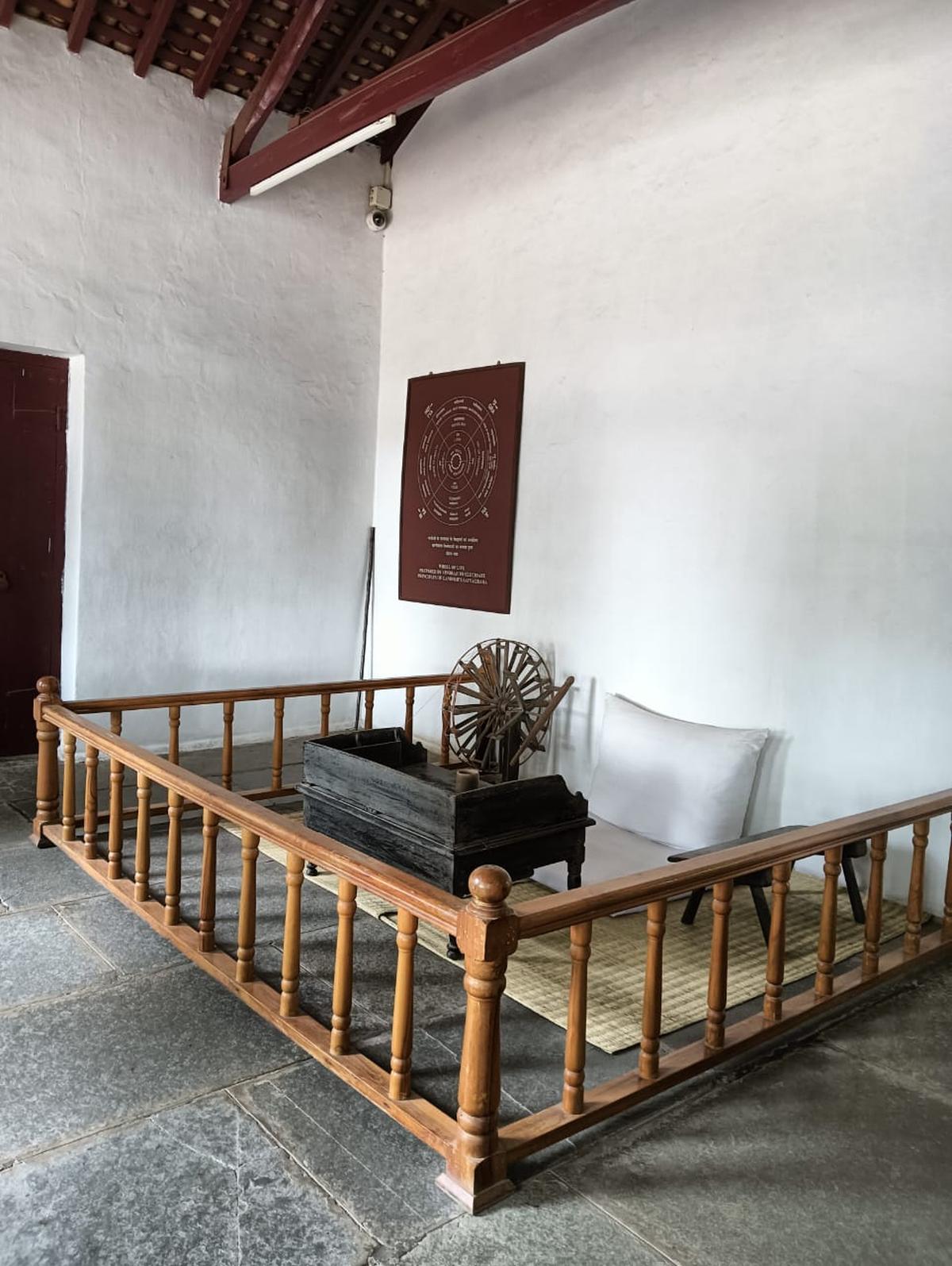
Sabarmati Ashram
| Photo Credit:
K. S. Swati
4pm: Upon your return to the main city, head to Sabarmati Ashram. To honour Mahatma Gandhi’s return from South Africa, the Sabarmati Ashram was established on May 25, 1915, and later moved to a site near the Sabarmati River on June 17, 1917. Do not miss watching the sunset at the Atal Bridge, also known as the Sardar Vallabhbhai Patel Bridge, which is just five kilometres away. This significant 1,325-metre cable-stayed bridge, completed in 2012, connects the city’s eastern and western sides across the Sabarmati River and is named in honour of former Prime Minister Atal Bihari Vajpayee.
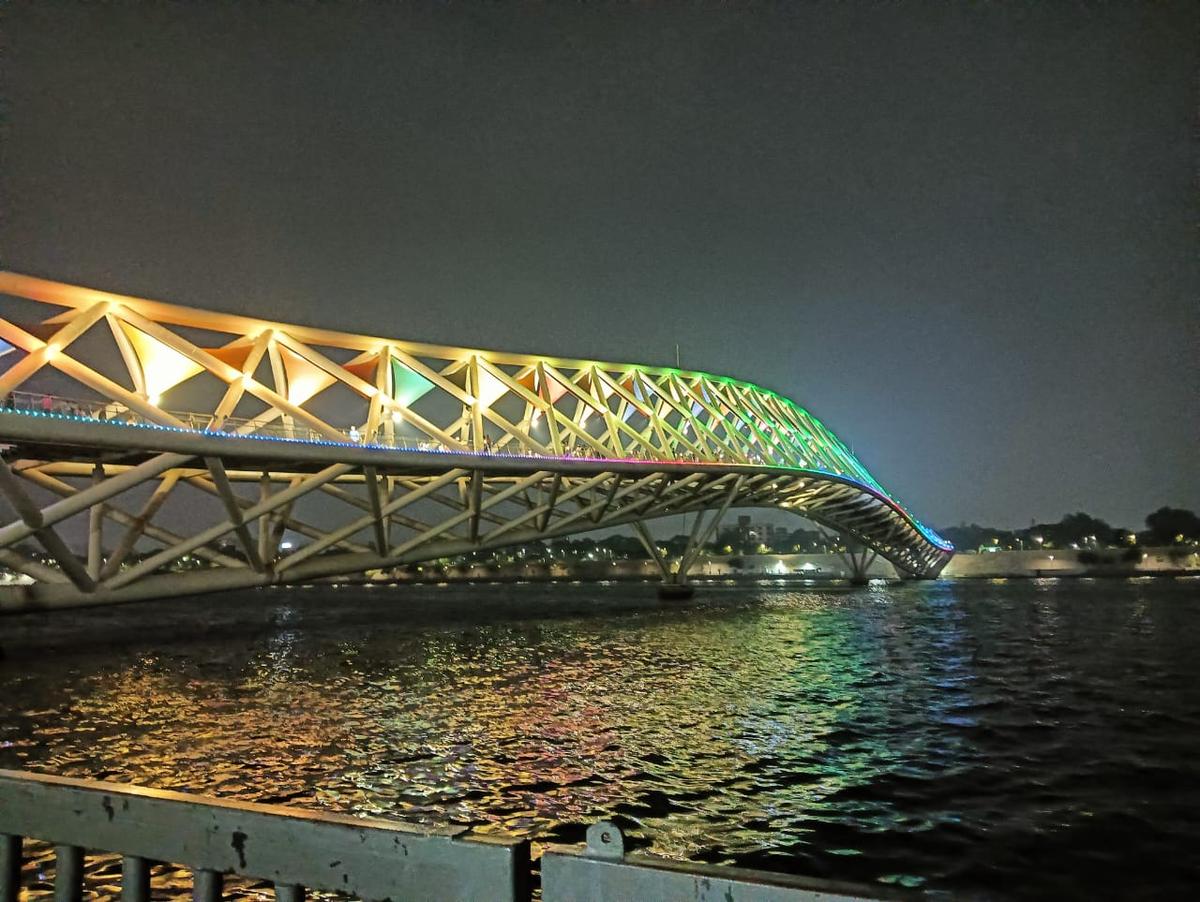
Atal Bridge overlooking Sabarmati River
| Photo Credit:
K. S. Swati
Stay
The ITC Narmada is a responsible luxury hotel that encapsulates the culture and tradition of Gujarat. The hotel draws architectural inspiration from the Narmada river, the intricate stepwells of Gujarat, traditional Toran gateways, and exquisite latticework. The culinary offerings feature five distinct cuisines: Peshawari, inspired by the North-West Frontier of India; Royal Vega, showcasing dishes rooted in local culture and ancient Indian cooking methods; Adalaj Pavilion, an all-day dining experience inspired by the Adalaj ni-Vav stepwell; Yi Jing, presenting Chinese cuisine through a simple, contemporary style; and Fabelle, an in-house chocolate boutique. Complementing these offerings, the hotel boasts a spa called Kaya Kalp, along with a swimming pool, gym, and sauna.
6pm: If you are looking for a place to take home a piece of local culture, sharpen your bargaining skills and visit Law Garden. It is a vibrant market where you can find an array of beautiful chaniya cholis, dupattas, and jewellery.
9pm: Manek Chowk, named after the 15th-Century Hindu saint Maneknath, who helped Ahmed Shah I in building the Bhadra Fort, wears different hats as the day progresses. It begins from being a vegetable market in the morning, to a jewellery bazaar in the afternoon to finally becoming a pitstop for devouring local street food. The bustling area is awake till late in the night brimming with a plethora of food choices ranging from pav bhaji to masala dosa.
Ahmedabad is a city where modern flair seamlessly intertwines with historical grandeur.
The writer was in Ahmedabad at the invitation of ITC Narmada
Published – October 16, 2024 04:04 pm IST
#Explore #Ahmedabad #hours
